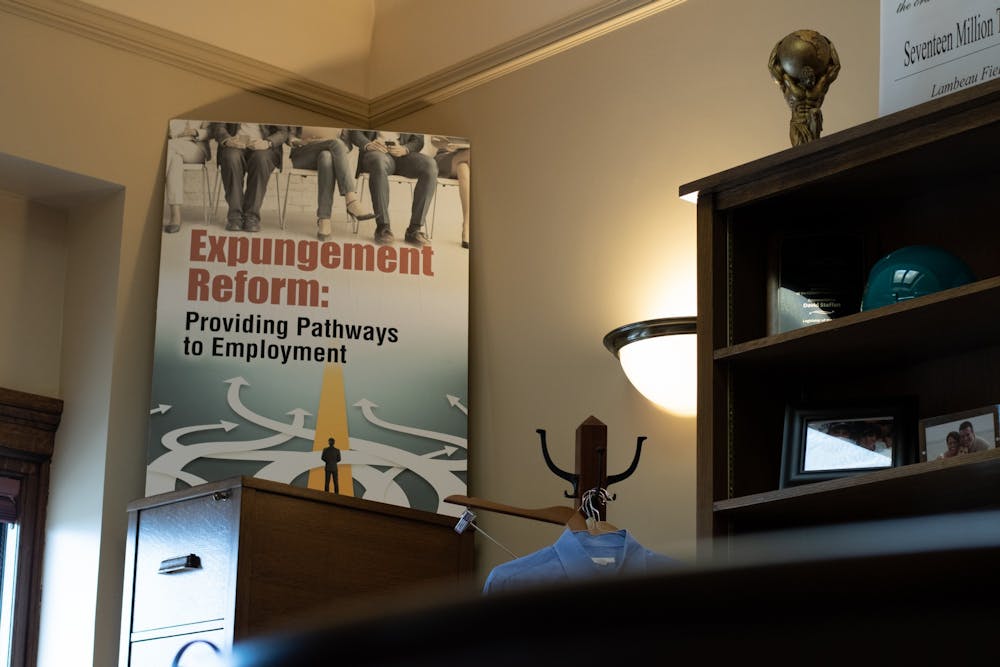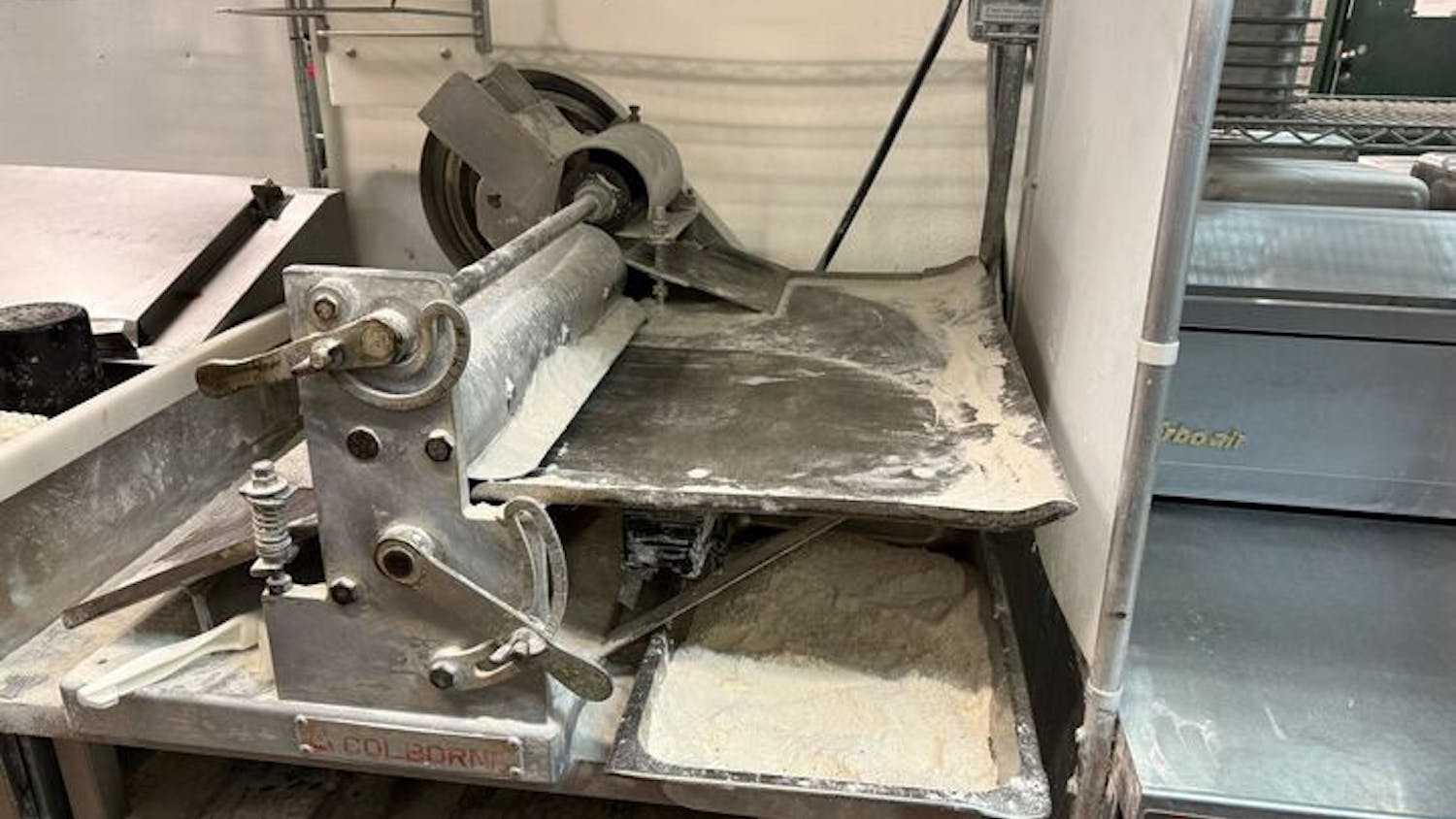Rep. David Steffen (R-Green Bay) appeared in front of a Senate committee last week to present a bipartisan bill that would reshape Wisconsin’s process for expunging criminal charges.
From Steffen’s perspective, it's common sense reform. He estimates his bill could add up to 10,000 people to a shrinking Wisconsin workforce in need of new hires. It would also allow those convicted of low-level, non-violent crimes to break free of the state’s abnormally strict expungement laws, which bar people over 25 years old from clearing their criminal record.
Most of his colleagues and nearly two dozen interest groups agree. Not a single group is registered in opposition to Steffen’s bill, and prior versions of his expungement reform plan passed the Assembly with overwhelming majorities two separate times since 2019.
Yet, each time, his bill died in the Senate. Why?
According to Steffen, Republicans require bills to have support from 17 Republicans before hitting the Senate floor — more than the amount needed to pass a bill with bipartisan support.
To Steffen, the process is a “frustrating but understandable” part of politics that maintains party cohesion.
To Sen. Kelda Roys, one of numerous Democrats behind Steffen’s bill, it’s a “profoundly anti-democratic” display of the outsized power Republicans hold in a state that’s voted for Democrats in five of the last seven major statewide races.
“This is a no-brainer,” Roys told The Daily Cardinal. “Wisconsin is by far the worst state in terms of expungement, and we have the opportunity to make our state better.”
But to Marianne Oleson, an executive assistant to the directors for EX-incarcerated People Organizing (EXPO), the stalemate is yet another barrier for formerly incarcerated individuals struggling to rejoin society despite serving a full sentence.
“We see it every day — good people who are just trying to get their lives back on track and do what's being asked of them, and they can't,” Oleson said. “We can do better.”
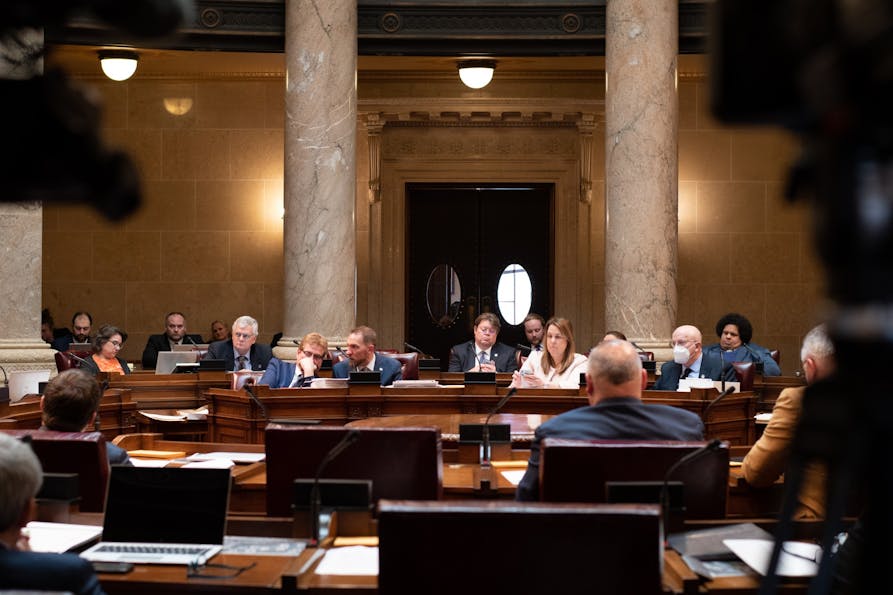
Lawmakers sit in session in the Wisconsin State Senate on March 22, 2023. Rep. David Steffen (R-Green Bay), not pictured here, has sent his expungement reform bill to the Senate twice since 2019, having already earned approval from lawmakers in the Assembly. Steffen's bill never received a Senate vote.
Wisconsin expungement laws a national outlier
Wisconsin is the only state in the nation where past and closed cases are not eligible for expungement, according to the Wisconsin Policy Forum. Under current state law, individuals must apply for expungement at the time of their sentencing.
It’s also one of just a handful of states that limits expungement eligibility to young offenders, with Wisconsin’s age cap set at 25 years old.
That means in Wisconsin, anyone over the age of 25 who commits a misdemeanor or low-level non-violent felony — such as theft or drug possession — must carry those charges on their criminal record forever, even if their charges are acquitted or dismissed.
Oleson is one of those people. Convicted in 2012 with seven counts of low-level, non-violent felonies for misleading statements and omissions of stocks and securities, she was sentenced to seven years in prison and 21 years of extended supervision after release.
When Oleson — a mother of three who said she was a business owner of 15 years — left prison on early release in 2017, she was excited to jump back into a life of “working and thriving.” Although she eventually found a job at EXPO, Oleson said her criminal record haunted every job she applied for, despite Wisconsin’s strong employment non-discrimination laws.
“I was unemployable,” Oleson said. “It was devastating.”
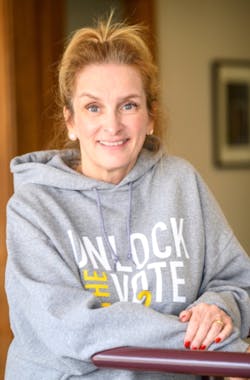
Legislators seek expanded job opportunities
Joblessness is the single most important predictor of recidivism, according to the American Civil Liberties Union. Yet, a 2018 report from the Prison Policy Institute (PPI) found the unemployment rate for formerly incarcerated Americans is 27%, higher than peak unemployment during the Great Depression.
Formerly incarcerated individuals like Oleson want to work. Previously incarcerated people between ages 25 and 44 are either employed or actively looking for work at higher rates than the general population, according to the PPI.
What’s more, those who have their charges expunged see a 25% increase in income after two years, according to a Michigan Law School study from 2019.
Prospects are less fortunate for previously incarcerated Wisconsinites over 25, who can’t get their charges expunged.
“We can finish a mortgage, we can finish an education. We can even finish a marriage if we want to,” Oleson testified at last week’s Senate hearing. “But we can’t finish a criminal conviction. It follows us and hangs over us.”
Both Democrats and Republicans say Wisconsin’s current expungement law is confusing and outdated. Rep. Evan Goyke (D-Milwaukee), a former public defender and ardent supporter of expungement reform, testified last Tuesday that even he couldn’t grasp the law’s full reach.
“I cannot tell you how many people I know that didn't know to ask [for expungement],” Goyke said. “I reflect on instances where I didn't ask, and I could have.”
It’s why Steffen introduced the legislation in 2017. Limiting employment opportunities for people who are “square with the house” and removed from the criminal justice system doesn’t make sense, he said, especially when employment reduces recidivism.
“If we as a party, a government [and] a society are truly committed to getting people to work, especially when they want to work, this is a no-cost option to make that possible,” Steffen told the Cardinal.
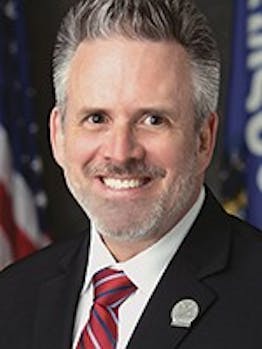
Can it pass?
Over the past eight years, Steffen worked first with retired Sen. Alberta Darling and now with Sen. Rachael Cabrera (R-Appleton) to counter concerns that the expungement reform bill is giving a “special pass to some folks” or reinforcing crime in Milwaukee, which he said is a growing concern among Republican lawmakers.
“I am constantly surprised by the number of curveballs that are being thrown at this bill,” Steffen said.
As in past years, Steffen’s bill faces a rocky road to the Senate floor. During Tuesday’s hearing, Sen. Andre Jacque (R-Green Bay) suggested the proposed one-year waiting period for expungement eligibility was too short compared to neighboring states, among other concerns.
A longtime detractor of Steffen’s proposal, Jacque said his support for this bill would depend on how authors move forward.
“This is a bill that’s essentially in the same form as a bill the authors have rejected potential amendments to in the past,” Jacque told the Cardinal. “If that changes, I’m open to supporting the bill.”
Additionally, Jacque worried Steffen’s bill could overwhelm Wisconsin’s courts with expungement requests, a concern backed by findings from the Wisconsin Policy Forum. However, the agency’s 2018 report said potential caseloads may vary depending on how lawmakers introduce expungement reform.
Jacque said his office is working on its own expungement reform bill but did not share specifics.
Despite continued opposition from members of his own party, Steffen is “more optimistic than ever” the bill will pass this session after years of refinement and compromise.
With longtime expungement reform supporter Rep. Dan Knodl (R-Germantown) set to join the Senate after winning an 8th District special election in April, Steffen believes he could have enough votes to beat the “numbers game” that’s halted previous iterations of his bill.
Olseon said Steffen’s bill could do more to expedite expungement for the 1.4 million Wisconsinites with a criminal record. She suggested a program similar to Michigan’s “Clean Slate” law, where people with qualifying charges have their records expunged automatically after a set amount of years.
But for her, it’s still a step in the right direction for a state she said struggles to rectify “punitive beliefs” toward criminal justice.
“People do deserve second chances, and we are all more than our worst choice,” Oleson said.
Tyler Katzenberger is the former managing editor at The Daily Cardinal. He also served as the state news editor, covering numerous protests, elections, healthcare, business and in-depth stories. He previously interned with The Capital Times, Milwaukee Journal Sentinel and is an incoming POLITICO California intern. Follow him on Twitter at @TylerKatzen.

